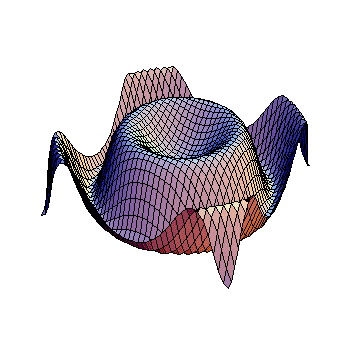First thing, let's see how many full loops we can get out of that angle, #theta = 600^"o" = 360^"o" + 240^"o" = 2*360^"o" - 120^"o"#
Why this is important, you may ask? It's because every 360^"o" degrees we have a full loop and return to where we were. So for the two main trig functions, #sin(x)# and #cos(x)# we can say that
#sin(600^"o") = sin(240^"o") = sin(-120^"o")#
#cos(600^"o") = cos(240^"o") = cos(-120^"o")#
And since every other function is a ratio of one or two of these functions, we can work with that. Now, we know that
#sin(-theta) = -sin(theta)# and #cos(-theta) = cos(theta)#
So we can say that
#sin(600^"o") = -sin(120^"o")#
#cos(600^"o") = cos(120^"o")#
We can then use the angle sum / double angle formula, since #120^"o" = 60^"o"+60^"o"#
#-sin(120^"o") = -(sin(60^"o")cos(60^"o") + sin(60^"o")cos(60^"o"))#
#cos(120^"o") = cos(60^"o")cos(60^"o") - sin(60^"o")sin(60^"o"))#
Since #60^"o"# is a special angle we know that #sin(60^"o") = sqrt(3)/2# and #cos(60^"o") = 1/2#, so
#-sin(120^"o") = -(sqrt(3)/2*1/2 + sqrt(3)/2*1/2) = -sqrt(3)/2#
#cos(120^"o") = 1/2*1/2- sqrt(3)/2*sqrt(3)/2 = -2/4 = -1/2#
And from that, we just evaluate the others by division:
#sec(600^"o") = 1/cos(600^"o") = -1/(1/2) =-2#
#csc(600^"o") = 1/sin(600^"o") = -1/(sqrt(3)/2) = -2/sqrt(3) = -(2sqrt(3))/3#
#tan(600^"o") = sin(600^"o")/cos(600^"o") = (sqrt(3)/2)/(1/2) = sqrt3#
#cot(600^"o") = 1/tan(600^"o") = 1/(sqrt(3)) = sqrt(3)/3#


